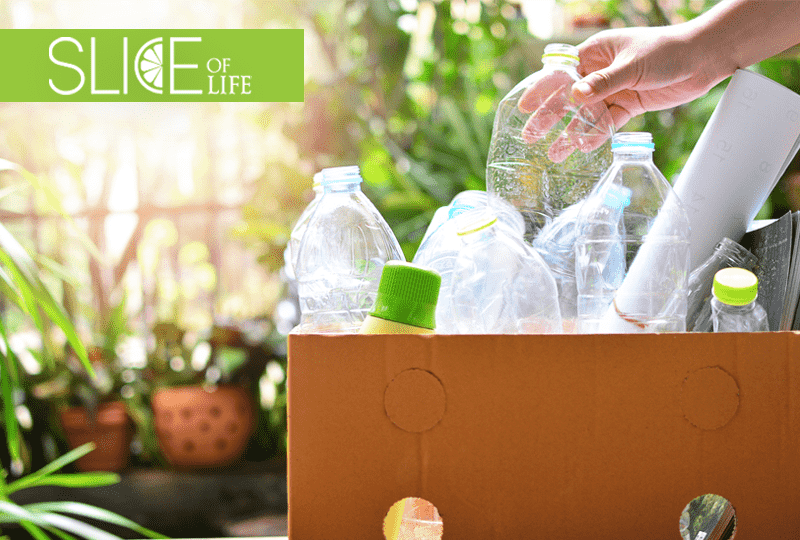Douglas Adams once wrote the quip, “Time is an illusion. Lunchtime doubly so.” A thing that students and professional adults tend to have in common is the feeling that work encroaches on our lunch schedule so that it often becomes more a meal of Navy Seal efficiency rather than a restful break. A plastic straw sticking out of a disposable cup; packets of single-serving sauces; the disposable plastic fork and spoon that just might be strong enough to cut through our left-overs. These little tools of the trade serve their purpose once for us and are dropped into the trash as we turn back to our responsibilities, but people are becoming increasingly aware of how disposable, single-use plastics are becoming a major concern everywhere from landfills to the bottom of the ocean.
In fact, the World Wildlife Foundation estimates that it would take roughly 450 years for a plastic water bottle to decompose. Today, we are going to think about some simple habits we could all address to minimize the amount of plastic waste that we go through in our day-to-day lives. You might not feel like any one of these behaviors will make a difference, but if everyone were to reflect on their daily behaviors and take a few steps to reduce their reliance on disposable plastics, then we would all be contributing to a healthier world tomorrow. While recycling at home is a fantastic start, here are a few things you can look out for away from the home (and particularly around meals):
- Get your hands on a Reusable Cup or Thermos for everything from coffee, to water, to to-go soda. Obviously, you won’t want all of those in the same vessel, but many people get attached to having their little coffee thermos with them. Plus, Life University has handy hydration stations around for you to easily top off your water!
- We know this is a bit of an issue for some people, but consider using Paper Straws when available (or just skip the straw altogether – it might be handy if you are driving, but otherwise it’s unnecessary)
- Get reusable tote bags or a backpack to Reduce the Number of Plastic Bags You Use. Sure, sometimes those plastic bags can find a second use, but getting in the habit of taking your own bags to the grocery store can stop you from throwing out excess bags each week.
- When you are in that store, consider Buying Box Over Bottle. Many eco-conscious companies offer their products in cartons (think juice, soups or other liquids), which are easier to dispose of than plastic bottles.
- In your kitchen, do a little personal recycling and Reuse Safe Containers. Not only is it frugal to reuse twist-off jars, bottles and sealable containers, but it can help avoid having your cupboards filled with plastics.
- When you can Avoid To-Go-Plasticware, Such As Forks and Spoons. These serve a very quick use and, let’s be honest, they are usually so weak that they end up bending before they are very useful. Keeping a set of silverware at your workplace or just waiting the few extra minutes to eat at home can save on unnecessary waste.
- As a final tip for those who pack lunch ahead, make sure to Use Reusable Lunch Bags instead of plastic zip-locks. And when you can, buy in bulk and pack that material in reusable containers rather than buying “lunch size” servings, which usually involve individual plastic wrappers.
As you can see, none of these tips ask you to give up anything massive, and they all really come back to one central point – thinking ahead. Yes, there will be times where you get to the grocery store without your reusable bags or that you grab a drink from the vending machine because you forgot your personalized water bottle at home. These things happen, but getting into the habit of keeping that tote bag in the car or even just taking the few extra seconds to see if more eco-friendly options are available in the grocery store aisle can help reduce your personal reliance on disposable plastics.


Social Media